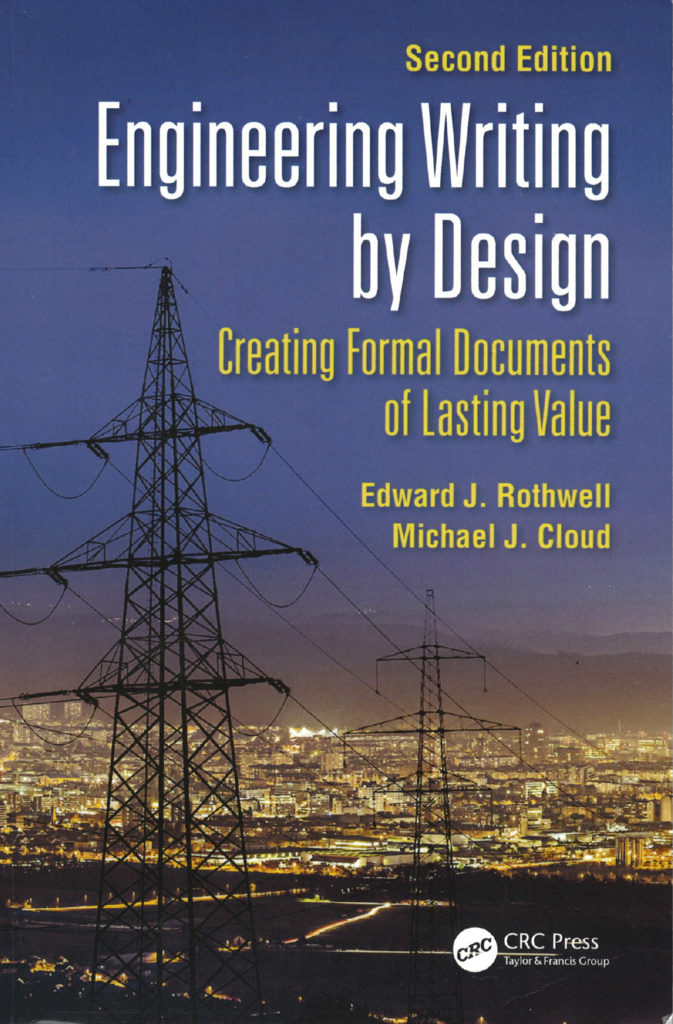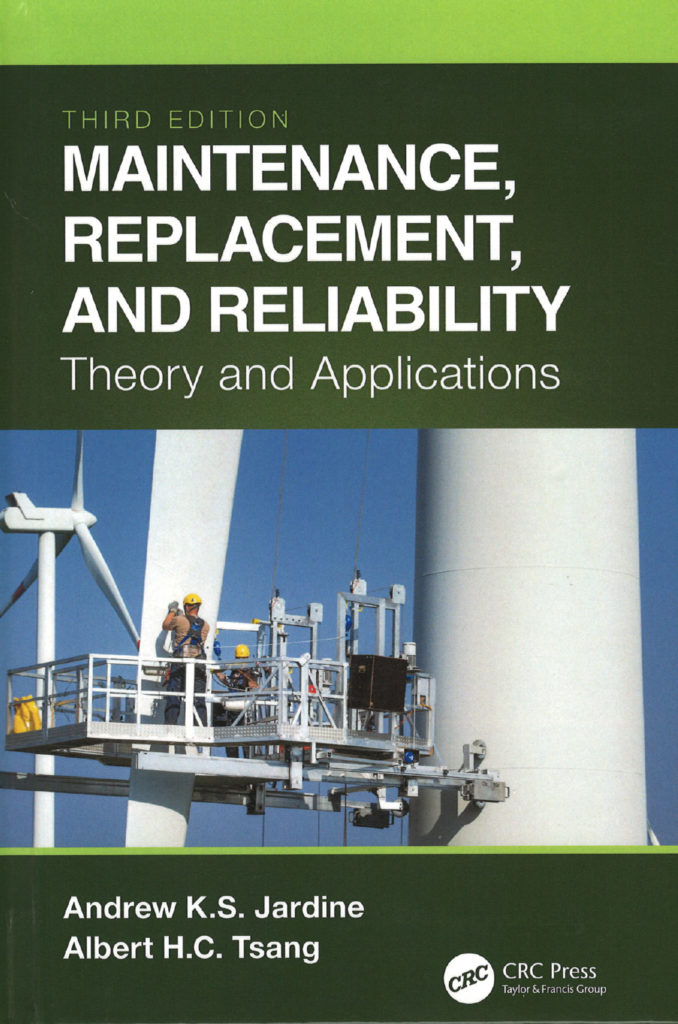While there may be many readers who prefer a quick solution from books reviewed here, not all books offer a quick or easy solution. A solid understanding of engineering and conveying that complex information are essential to becoming credible as a leader of a complex organization. The two books reviewed here address that need.
ENGINEERING WRITING BY DESIGN: CREATING FORMAL DOCUMENTS OF LASTING VALUE, 2nd ed.
Edward J. Rothwell and Michael J. Cloud, 2020, 193 pages, CRC Press, New York, $51 softcover.
 Engineering students, in general, pursue the major because they are good at math and don’t like English (reading and writing) as much. It might work well in college when over half of the courses are technical, but after graduation and in a career, the tables get turned. Communication, writing, and presenting become an essential skill unless the goal is to remain in a cubical, behind a screen, or avoiding any kind of managerial or leadership role. To address one of these essential skills, writing, Rothwell and Cloud have written Engineering Writing by Design.
Engineering students, in general, pursue the major because they are good at math and don’t like English (reading and writing) as much. It might work well in college when over half of the courses are technical, but after graduation and in a career, the tables get turned. Communication, writing, and presenting become an essential skill unless the goal is to remain in a cubical, behind a screen, or avoiding any kind of managerial or leadership role. To address one of these essential skills, writing, Rothwell and Cloud have written Engineering Writing by Design.
The authors are Electrical Engineers, and it shows in the initial examples. A non-EE can replace specific electrical examples, such as the Ohm’s law or Maxwell’s equation, with a different technical/analytical tool and still make good use of the advice. What’s important and frequently overlooked by young engineers are concepts of audience, logical presentation, and grammar. Some of these are obvious while others are frequently more nuanced. The authors do a good job by first presenting the important concepts for engineers followed by the mechanical issues of grammar.
An engineer who assumes the audience is just as knowledgeable about the technical issues makes a fundamental error that erodes credibility and an opportunity to compel the audience. Engineers, technicians, and facility officers are deeply knowledgeable in complex technical issues. The people they serve are not always as knowledgeable, but they also aren’t idiots (particularly in the higher education environment). Techniques and examples to address different audiences are extremely helpful. Later, when equations or other technical matter are to be inserted in a document, there are some good examples and solutions.
Engineering Writing by Design, while a focused, technical writing text for a college student, is a useful book that will help a seasoned professional become a more effective communicator. Written well, and written by engineers, it is an excellent reference for many facility officers.
MAINTENANCE, REPLACEMENT, AND RELIABILITY: THEORY AND APPLICATIONS, 3rd ed.
Andrew K.S. Jardine and Albert H.C. Tsang, CRC Press, 2022, 412 pages, New York $139, hardcover.
 There are few books that really dig into facility maintenance beyond those available from APPA. Many books address facility management, but they are management books and not focused on technical and analytical issues important for facility engineers and officers. For the technically inclined, Maintenance, Replacement, and Reliability, is one of these limited number of books that really look at the details of facility maintenance.
There are few books that really dig into facility maintenance beyond those available from APPA. Many books address facility management, but they are management books and not focused on technical and analytical issues important for facility engineers and officers. For the technically inclined, Maintenance, Replacement, and Reliability, is one of these limited number of books that really look at the details of facility maintenance.
Beginning with the logical approaches to maintenance—component-based, inspection-based, and capital renewal—and the resource requirements of each, the authors provide significant technical analysis and theory for why one approach may be used in preference to another. The technical analysis is detailed and deep. There are graphs that link the cost of maintenance to its economic benefits. The graphs are particularly helpful to understand the factors used to make decisions about complex issues easier. There are also graphs demonstrating ways to apply the Internet of Things (IoT) to maintenance decisions.
Equation-shy readers will be intimidated, no doubt. There are summations, integrals, exponents, probability, and numerical models. These equations support the description of the decision process; the equations are supported by graphs and charts. It’s possible to skip some of the equations and focus on the options for maintenance and the associated decisions processes.
Those interested in understanding sophisticated theories behind good maintenance will find Maintenance, Replacement, and Reliability an essential text. It is also an essential text for college facility engineering programs.
Ted Weidner is professor of engineering practice at Purdue University, West Lafayette, IN, and consults on facilities management issues, primarily for educational organizations. He can be reached at [email protected]. If you would like to write a book review, please contact Ted directly.
Bookshelf
Book reviews on current publications relevant to the profession, trends, and working environment of facilities and educational managers and professionals. To contribute a book review, contact Ted Weidner, field editor of this column.
See all Bookshelves.


